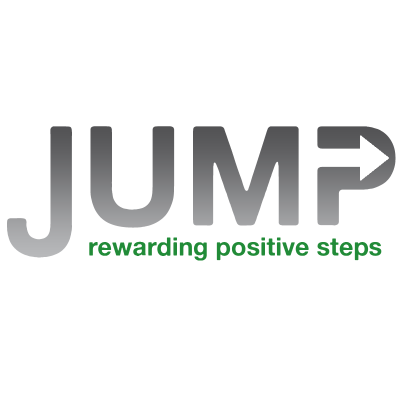In recent years, there has been a growing emphasis on the importance of sustainability and its impact on our planet. However, sustainability is not just limited to environmental concerns. One crucial aspect of sustainability is its potential to promote healthy, sustainable lifestyles and reduce strain on healthcare systems. In this blog, we will explore:
- The importance of sustainable behaviours from a health perspective
- How Jump clients are incentivising these behaviours in their people
- How organisations who want a healthy, sustainable workforce can achieve this with Jump
Sustainable diets
Scientists estimate that food production accounts for 35% of all global emissions, and meat emits over twice the pollution of fruits, grains, and vegetables. Carnivorous diets have been linked to a higher risk of cardiovascular disease, diabetes, and bowel cancer. Cardiovascular disease causes 66,000 deaths in the UK annually and costs healthcare bodies in England £7.4 billion annually. However, vegan diets aren’t automatically low-carbon, especially if they contain high-carbon products such as avocados or other air-freighted foods.
Whilst it’s clear that our diets significantly impact both the climate and our health, on a day-to-day basis, most people aren’t aware of the consequences of their food choices. New habits are essential if we are to make the global transition to low-emission, healthy diets that the Intergovernmental Panel for Climate Chane (IPCC) has urged for.
Several of Jump’s clients have chosen to address sustainable and plant-based diets within their programmes. For example, Dorset ICS Groups programme ‘EcoEarn’ includes the following activities which promote healthy, sustainable diets:
Be Plant Powered
This activity earns users 25 Green Points for each day that they avoid meat and dairy within a week. This helps users lower their risk of cardiovascular disease, diabetes, and bowel cancer. It also helps them reduce their carbon footprint by roughly 50kgs of CO2 annually!
Low Carbon Diets
With this activity, users who choose a more sustainable diet earn up to 250 points a week for continuing to follow it. Promoting low-carbon diets encourages users to eat locally and seasonally, which means that food is fresher and more nutritious, which has a whole host of health benefits.
Package-free lunch
This activity rewards users who make their lunch at home, earning them up to 140 green points every time that they do it within the week. Whilst this is primarily an activity aimed at reducing plastic waste, it also helps users choose homemade options instead of shop bought lunch items high in saturated fat, salt, and sugar.
Food waste pledge
This activity sees users who pledge to reduce their food waste earn 200 green points for every week they uphold their pledge. Reducing food waste has many positive implications for the environment, but it also encourages users to reduce their portion sizes, which can help users maintain a healthy weight and help them save their pennies – win, win!
Active travel
Air pollution leads to more than half a million deaths in Europe annually. NHS costs resulting from air pollution are projected to reach £ 1.5 billion by 2025 and £ 5.1 billion by 2035. Encouraging individuals to choose alternative modes of transportation, such as cycling or walking, reduces air pollution and promotes regular physical activity. Many of our programmes encourage active travel, and examples of some activities can be seen below:
Cycling tips
Our Grasp programme with Leeds Teaching Hospitals NHS Trust suggests users read the Cycle UK advice to pick up top tips and earn 100 Green Points. This is a great activity to help users gain confidence in cycling, and regular cycling has been found to reduce the risk of a number of serious illnesses including heart disease, type 2 diabetes and stroke!
Report your exercise
Our Green Rewards programme with Manchester University NHS Foundation Trust gives users up to 125 Green Points a week for reporting their exercise.
Step challenge
Our Choosing Green programme with University Hospitals Plymouth NHS Trust has an activity that awards users 20 Green Points for every 10,000 steps they take. This activity allows steps to be uploaded manually when users have a Fitbit.
Emotional wellbeing
Emotional and physical wellbeing are inherently linked and as important as each other for leading a healthy lifestyle. Jump programmes help build positive habits around mental wellbeing through activities that focus on the subject. Some examples of activities our clients have chosen include:
Mindfulness
Our Shine programme with Newcastle upon Tyne Hospitals NHS Foundation Trust has a wellbeing activity where users earn 200 Green Points for reading the NHS’s five steps to mental wellbeing. Mindfulness has been shown to reduce anxiety and depression, improve sleep, and lower blood pressure.
Allotment volunteer
This is an activity on our collaborative ‘Greener Together’ programme for University Hospitals Bristol, Weston NHS Foundation Trust, and North Bristol NHS Trust. In this activity, users report how they have helped on an allotment that week to earn 150 Green Points. Participating in gardening has been found to significantly impact wellbeing, including reductions in stress, anger, fatigue, depression, and anxiety symptoms.
Green your space
Our EcoEarn programme with Dorset ICS Group promotes keeping houseplants and encourages users to submit a photo of theirs for up to 300 Green Points! Keeping houseplants has been found to improve mood and reduce headaches and stress.
Staff health and wellbeing support network
Our Grasp programme with Leeds Teaching Hospitals NHS Trust encourages users to join the LTHT Staff Health and Wellbeing support network to earn 100 Green Points. This is an excellent example of how Jump programmes can be used to promote internal initiatives and create community, which is imperative for wellbeing.
The importance of a healthy workforce
Having healthy employees is of paramount importance for any organisation.
The well-being of employees directly impacts their productivity, performance, and overall success of the organisation. Healthy employees are likelier to be engaged, motivated, and focused, leading to increased efficiency and higher quality outputs.
When employees are in good physical and mental health, they experience reduced absenteeism, lower healthcare costs, and decreased turnover rates, ultimately contributing to improved financial stability . Moreover, a healthy workforce fosters a positive work environment, promotes teamwork, and enhances employee morale and satisfaction. By prioritising employee health, employers demonstrate their commitment to the wellbeing of their staff, resulting in increased loyalty, job satisfaction, and, ultimately, a thriving organisation.
Join us
At Jump, we are on a mission to motivate and empower people to take action for a sustainable future.
If you would like to hear more about how we help organisations achieve sustainability and wellness success, we are holding a virtual free-to-attend Sustainability Engagement Masterclass on the 20th of June at 10 am, which you can register for here.



.jpg)





